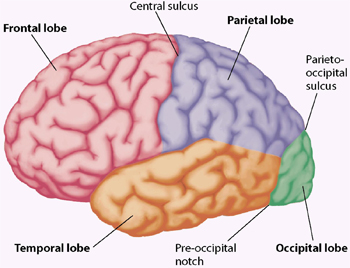| Previous issues | Subscribe |
| STUDENTS & GRADUATES |
|---|
|
|
|
|
|
|
|
|
| TECHNOLOGY |
|---|
|
|
|
|
| INITIATIVES - LANGUAGE |
|---|
| INTERNATIONAL |
|---|
| HIGHLIGHTS |
|---|
|
|
|
|
|
|
|
|
|
|
|
|
|
|
|
Co-editors: Elissa Allerhand, Ilene Bloch-Levy Photographer: Gideon Markowitz Graphic Designer: Laura Grinberg Web Manager: Batsheva Engelberg-Behr Web Master: Sonia Pechersky |
| RESEARCH |
|---|
Can We Split Our Attention?
For the past 13 years, Dr. Nurit Gronau, Senior Faculty Member at the Open University's Department of Education and Psychology, has been focusing her research studies on what is called the "field of attention," and specifically on visual attention: our ability to focus on specific stimuli and filter out irrelevant stimuli. This is crucial, because otherwise we would be flooded with stimuli and therefore incapable of functioning on any level. Thus, our brains process within a limited area of the visual field, which is called the "field of attention." Dr. Gronau's first encounter with the "field of attention" was during her Ph.D. studies at the Hebrew University under the supervision of Prof. Gershon Ben-Shakhar (former President of the Open University) and Prof. Asher Cohen. Her subject matter was the phenomena of the so-called 'cocktail party effect.' You are talking to someone in a room full of other people, but somewhere across the room someone mentions your name. Your ears perk up. How do you explain that? And, can you continue to give your full attention to the individual with whom you are speaking? Do We Pay Attention to Our Surroundings?"On the one hand," Dr. Nurit Gronau explains, "our brains are very efficient, so you can pay attention to your surroundings while giving the individual your complete attention. On the other hand, if there is something highly relevant to you – like your name – or if you're searching for something specific – such as your child who is wearing a baseball cap and has disappeared from your line of vision – anyone wearing a baseball cap will capture your attention."In Dr. Gronau's area of studies, 'attention' as we know it, has a special meaning. "In the visual field, we are talking about being able to process different types of visuals," Dr. Gronau continues "we can analyze the colors surrounding us, and if there's something moving, we are also able to process this. But, to be able to specifically recognize and understand what we are seeing, for this we need attention." So, attention is really our ability to filter out irrelevant stimuli, focus on relevant stimuli, understand what we are seeing, and then combine the seeing and the understanding. It's a complex process which has captured Dr. Gronau's 'attention' and has now focused her research on how attention affects visual object processing (combining her post-doctoral studies with her doctoral studies.)
Page: 1 2
|
